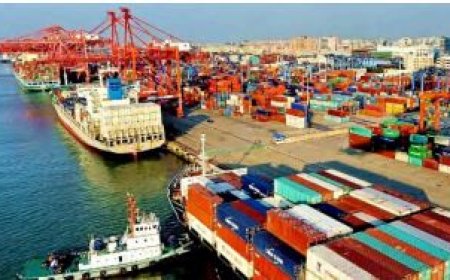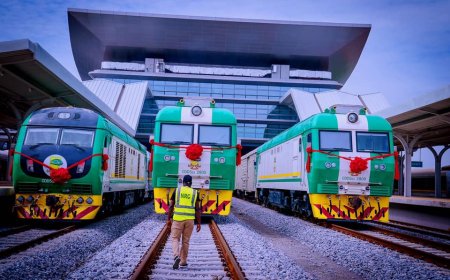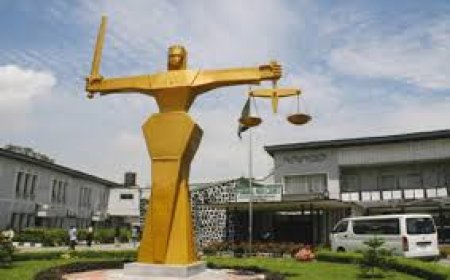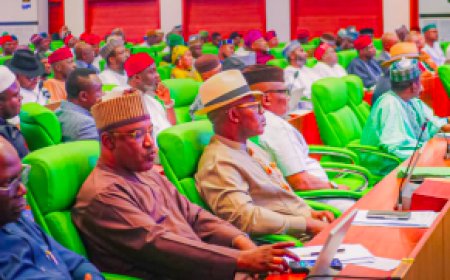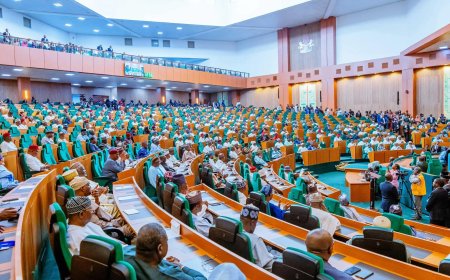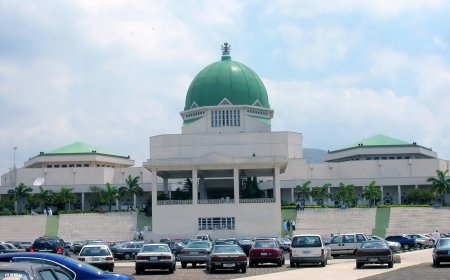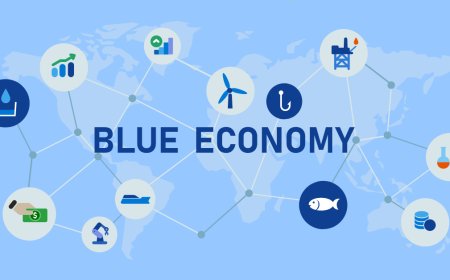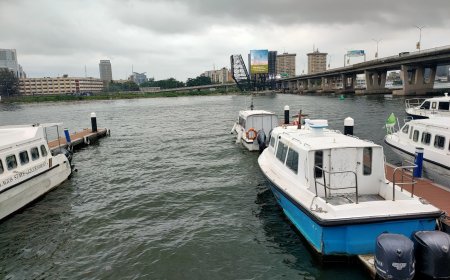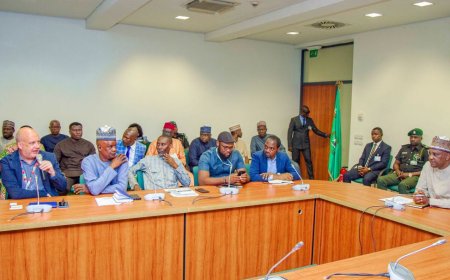Economic Diversification and Agricultural Development
Nigeria’s agricultural environment and development are currently stultified by various factors, ranging from insecurity, lack of technology, funding, etc To transform the Nigerian economy, a multi-pronged legislative approach, executive willpower, and stakeholder collaboration are essential The agricultural sector remains a veritable tool in advancing Nigeria’s ailing economy by creating wealth and reducing poverty among the well over 60% of the country’s workforce engaged in producing, processing, servicing, marketing and exporting agricultural produce The House will take legislative measures to support key sectors as follows
Click here to track progress

- Enact policies that support farmers with subsidies, access to credit, and modern farming techniques
- Provide tax breaks and incentives for local manufacturers and prioritise infrastructural development that aids manufacturing
- ICT and Digital Economy: Develop legislation that promotes digital innovation, data protection, and e-commerce
- Advocate for a curriculum that aligns with industry needs, emphasising STEM (Science, Technology, Engineering, and Math) and vocational training
- Enact laws that protect foreign investors, ensuring that their investments are safe and guaranteeing repatriation of profits.
- Set up special economic zones with attractive incentives to draw in international investors
- Allocate funds for research and development in key economic sectors
- Strengthen intellectual property laws to encourage innovation and protect inventors
- Develop policies that enhance Nigeria’s export potential and reduce unnecessary imports
- Pursue and legislate bilateral and multilateral trade agreements beneficial to the Nigerian economy.
- Establish a legislative framework for agricultural banks or financial institutions that can provide low-interest loans to farmers
- Promote agricultural insurance schemes to shield farmers from losses caused by natural disasters, diseases, or market fluctuations.
- Support the Executive to implement policies that subsidise the cost of essential agricultural inputs like seeds, fertilisers, and pesticides to reduce the cost of production for farmers
- Foster collaboration between the government and private sector in seed production, agro-processing, and agricultural infrastructure development
- Establish standards for agricultural products to meet both local and international markets
- Review laws and policies to streamline various interventions of the Central Bank of Nigeria (CBN) and the Ministry of Agriculture, broaden access and ease efficient use of funds.
- Conduct a holistic audit of policies, programmes, investments and results of agricultural interventions to set a new agenda for that sector based on contemporary best practices
- Provide tax breaks or incentives to organisations and businesses that invest significantly in the agricultural sector.
- Support policies encouraging youth and women’s participation in agriculture and addressing the ageing farming population issue
- Collaborate with the Execute to review import policies to protect local farmers from cheap imports that can undermine local production
Furthermore, we will also legislate on the following important areas:
- Reintroduction of the National Growth Enhancement Support Scheme (NAGESS): In recognition of the tremendous
successes recorded during the implementation of the National Growth Enhancement Support Scheme by the Federal Ministry of Agriculture that led to a significant increase in food production in the country, the House will enact legislation to provide it with a legal framework and expand its scope around the country as well as funding to support our farmers better - Blue Economy: A green economy targets improving human well- being and social equity while significantly reducing environmental risks and ecological scarcities The federal government has prioritised sustainable development that balances economic and environmental concerns Accordingly, the House will:
a Legislate on sustainable development to enhance the “Green Economy” by prohibiting harmful agricultural practices such as bush burning and push for a ban on the use of agrochemicals that are harmful to the soil and poisonous for human and animal consumption
b Legislate on Marine Spatial Planning (MSP) to designate areas for specific activities, such as fishing, shipping and conservation. This helps reduce conflicts and ensures sustainable use of marine resources c Legislate/oversee regulations and quotas to prevent overfishing, combat illegal, unreported, and unregulated (IUU) fishing, and promote sustainable fishing practices. d Adopt legislative measures to support research and development in blue technologies, such as ocean monitoring systems, sustainable fishing gear, and offshore renewable energy. e Support the development of a National Policy on Organic Agriculture in a consultative manner along with all relevant stakeholders f Encourage the Executive to develop a comprehensive National Blue Economy Strategy that outlines goals, priorities, and actions for sustainable development and growth in the blue economy sector - Improved Business Environment and Tax Reforms: As noted by the World Bank, Nigeria has made progress in advancing reforms to eliminate constraints in the business environment, especially through actions driven by the Presidential Enabling Business Environment Council (PEBEC) However, Nigeria’s ability to attract domestic and foreign investment remains low compared to its peers The House will: a Work with the Corporate Affairs Commission (CAC) and other relevant agencies to promote the streamlining and digitisation of the business registration process to reduce bottlenecks and delays b Work closely with the Executive to review and update tax laws and policies to modernise the tax system, improve transparency and predictability and offer incentives to businesses and foreign investors c Introduce legislation to provide tax incentives for investment in priority sectors such as agriculture, manufacturing and infrastructure development d Support the Executive to provide reliable infrastructure needed to attract investorse Develop legislation to improve access to finance, especially small and medium-sized enterprises (SMEs) f Collaborate with the Executive and relevant labour organisations to m odernise labour laws to make the business environment more attractive g Support the creation of special economic zones offering incentives for foreign businesses and ensuring no discrimination against foreign investors h Enact legislation to promote domestic and foreign investment by streamlining bureaucratic processes and incentivising investors through investor-friendly policies to attract investment to Nigeria
- Advancement of Innovation and Technology: Strengthening innovation and technology is pivotal for economic growth and enhancing Nigeria’s global competitiveness This is critical given the vast pool of young and talented people Progress in this sector will foster the development of innovation and technology across various sectors in Nigeria, promote economic growth, enhance productivity and improve the quality of life of Nigerian citizens In its commitment to the promotion of technology innovation, development and deployment in Nigeria, the 10th House will: a Ensure the full implementation of the Nigeria Startup Act, 2022, b Adopt legislative measures that strengthen intellectual property rights to encourage innovation c Enact policies that encourage the use and development of local technological content This can help nurture local tech industries and reduce reliance on foreign technology d Introduce a national innovation strategy to prioritise achievements in digital transformation, research and development, entrepreneurship, capacity building and economic development e Legislate to promote digital skills development programmes, including coding and programming training f Develop regulatory frameworks for emerging technology such as artificial intelligence, blockchain, FinTech and Internet of Things (IoT) g Enact legislation to mandate the digital transformation of government services towards using e-governance, digital platforms and open data initiatives to achieve efficiency, transparency and citizens’ engagement in public service delivery h Enact a Local Content legislation targeting other major sectors of the economy i e , ICT and Construction, etc

